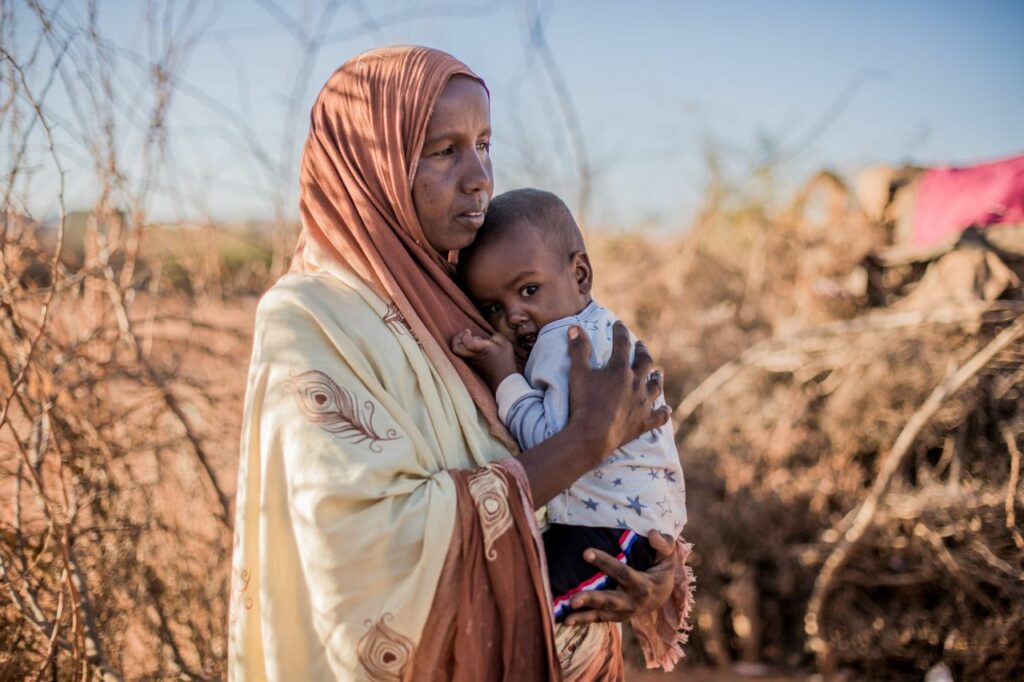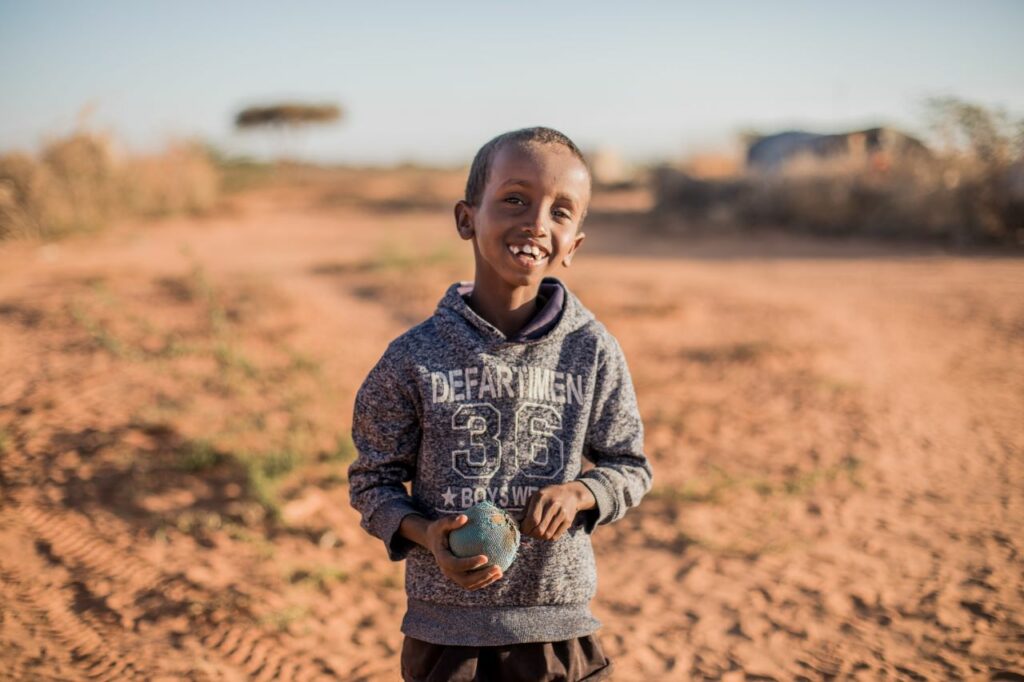Hoodo’s children didn’t die from illness or disease, they died from starvation caused by the catastrophic hunger crisis gripping the Horn of Africa. “It was only one month between their deaths. It was so painful and sad. I am now so afraid for my other children,” Hoodo tells us.
Somalia has been devastated by an extreme drought which has left 6.6 million people facing acute food insecurity amid the driest conditions in 40 years. 1.8 million children under the age of five are acutely malnourished, and huge numbers of people have been forced to leave their homes in search of food and water.
Hoodo is struggling to survive as a single mother after her husband abandoned her. Until a few years ago, she and her children had a good life. “We used to have over 200 livestock, sheep, camels, and donkeys. They all died due to the drought and we came to this IDP camp to seek help. That was three years ago.”

When Hoodo arrived in the camp she hoped that things would get better, but instead they got much worse. “The biggest tragedy was that I lost my five-month-old baby boy and my daughter who was one year old. They died because of starvation and malnutrition. We don’t have a health centre here and I couldn’t afford to go to the hospital. So, I kept them at home hoping they would get better, but they both died. They died close together, so we buried them in the same grave.”
Millions of Somali children are not getting enough food, both in terms of quantity and variety. Huge numbers of children are suffering from anaemia and vitamin A deficiency making then more susceptible to infectious diseases and at risk of developing severe acute malnutrition – dangerously low weight and severe muscle wasting. When acute malnutrition becomes severe, children can die.
Now Hoodo is concerned for her remaining six children. ”We don’t have three meals a day, we hardly get one. I give them food and water when I get it, but it’s rare. My daughter Amina is very sick, I am so afraid I will lose her like the others. I don’t have any money to take her to the hospital or buy medicine.”
IDP camps in Somalia, such as the one that Hoodo lives with her children, are coming under increased pressure as thousands of new families in dire need of food and water arrive each day. People walk for hundreds of miles to reach the camps, and once there often find that there is no help available to them.
“I feel so bad that I cannot feed my children. I try to not worry them, but it’s hard as they don’t understand and must go to sleep hungry. They always ask me for food, so I just wander around the camp with no guarantee of finding food. When I don’t find anything, I get so sad and disappointed. I hold my tears and try to entertain them and get their minds off food,” shares Hoodo.
“When we are short on food, I starve myself and give it all to the kids. I give them water and anything else I can get to fill their stomachs. I tell them that I’ll go and get food so wait for me to come back. They fall asleep while I’m out, and I lay beside them with a heavy heart and empty hands.”
We watch as Hoodo’s 8-year-old Mubaarik plays listlessly in the sand with his most precious possession, a soft ball made of knitted green fabric which has faded in the bright sunlight. He tells us that he often doesn’t get anything to eat at home, but sometimes is given some porridge at school.

“The last time I had food was yesterday, we hardly get any food. I get extremely hungry when I go to school. I eat some oatmeal that they serve in school, then I go home. When I go to school hungry, I can’t focus on the lessons. I miss a lot because of the lack of food. I can’t play with my friends, I get dizzy and need to sit down,” explains Mubaarik.
His sister Marwa, 9, agrees and says she would like to have a better life with her family. “Last night we did not eat anything, we slept on an empty stomach. Sometimes we eat and sometimes we don’t eat. I would like to have clothes, good food and a good house.”
14-year-old Ayaan says she tries to help her mother as much as she can, doing household chores while her mother searches for food, but it is not easy to find the energy to keep going. “I get very exhausted. My little brother and sister died because of hunger. I was so sad, and I miss them a lot. I am afraid for my other siblings, they get sick often, and we don’t have enough food. I am afraid they will also die because of hunger.”
It is clear that Hoodo is still traumatised from the loss of her youngest children, and she tells us that she misses them greatly. “I haven’t recovered from my tragic loss, it still haunts me. When I see children their age, who were born the same year as them, I think of them and it hurts so much.”
When we ask Hoodo about her future, she says that she fears that history will repeat itself and her family will suffer again. “When I think of the future, I get afraid that the previous tragic experience will happen again. I wish I could provide my children with food, education, and safety.”
Plan International is supporting Hoodo and her children with direct cash transfers and access to water. The multi-purpose cash assistance is being distributed with the support of our local partners TAAKULO and GREDO to help families in Somalia meet their basic needs such as food, water, and health care.